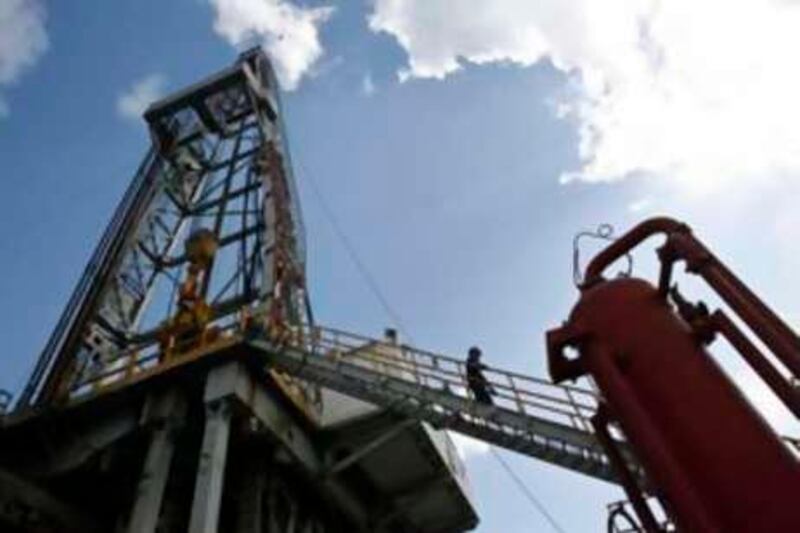The voice of industrialised oil consumers has warned its clients not be lulled by falling crude prices into presuming that supply concerns have evaporated, pointing out that huge investments in energy development will be needed. In a preview of its report on the long-term world energy outlook, due for release on Wednesday, the International Energy Agency (IEA) said a "massive" US$26 trillion (Dh95 trillion) of infrastructure investment will be required to ensure adequate global energy supplies until 2030, 18 per cent more than it projected last year. "Oil is the world's vital source of energy and will remain so for may years to come," the Paris-based agency said. "But the sources of oil to meeting rising demand, the cost of producing it and the prices that consumers will need to pay for it are extremely uncertain. "The immediate risk to supply is not one of a lack of global resources, but rather a lack of investment." Using an inflation-adjusted forecast based on an assumed average crude price of $100 a barrel between now and 2015, rising to more than $120 a barrel in 2030 (more than $200 in actual dollars), the IEA projected that oil demand would continue to rise by 1 per cent annually to 106 million barrels per day (bpd) in 2030 from 85m bpd last year. The price assumptions are "a major upwards adjustment" from last year's report, reflecting "a reassessment of the prospects for the cost of oil supply and the outlook for demand", it said. Most of the incremental oil supply will come from Opec countries, the IEA predicted, provided they invest enough. The energy watchdog's warning comes as major Opec producers including the UAE and Saudi Arabia have indicated they will slow investment in oil development over the next few years and will seek to delay projects. The UAE's target date for increasing production capacity by about one third to 3.5m bpd has been stretched to 2018 from 2010, according to the Energy Minister, Mohammed bin Dha'en al Hamli. "Where we can wait, we'll wait," he said on the sidelines of an Abu Dhabi energy conference this week. On Wednesday, the conference heard that a project to boost the production capacity of the UAE's Upper Zakum oil field - one of the largest crude reservoirs in the world - would be delayed due to rising costs. Saudi Aramco is "reviewing" parts of its planned $129 billion of investment to increase crude output in light of the "current economic circumstances", the Financial Times reported. Jay Pearson, the general manager of BP Abu Dhabi, a division of the British oil major BP, said the UAE should not wait for project costs to fall to pursue oil development. "There is no reason to delay investment at all," he said. "You cannot keep waiting for a lower price." Lack of investment in production capacity could lead to further oil price spikes, even higher than the one seen this summer, Dalton Garis, an associate professor of economics at Abu Dhabi's Petroleum Institute, told the Abu Dhabi conference. "The next top-out could be US$200 or $225 a barrel," he said. "Then it will crash, and we will go into another recession." In order to avoid that, the world would have to develop enough oil production capacity to maintain a steady surplus of three million to four million bpd, Mr Garis estimated. "Markets got nervous after surplus capacity fell below two million bpd and added a $30 per barrel risk premium to the price of oil. Now spare capacity is about four million bpd, and the premium has deflated. That is why prices have come down so quickly," he said. Commodity prices inevitably rise exponentially if demand increases faster than supply for any length of time, but economies cannot accommodate exponential price increases, creating market instability that is difficult to control, Mr Garis told the conference. This can be especially serious if the commodity in question is oil, because "the supply of oil to the world is the lifeblood of the real economy", he said. "This oil flow cannot cease." tcarlisle@thenational.ae
Lack of funding could hike oil price
Lack of investment in production capacity could lead to further oil price spikes, even higher than the one seen this summer.

Editor's picks
More from the national




